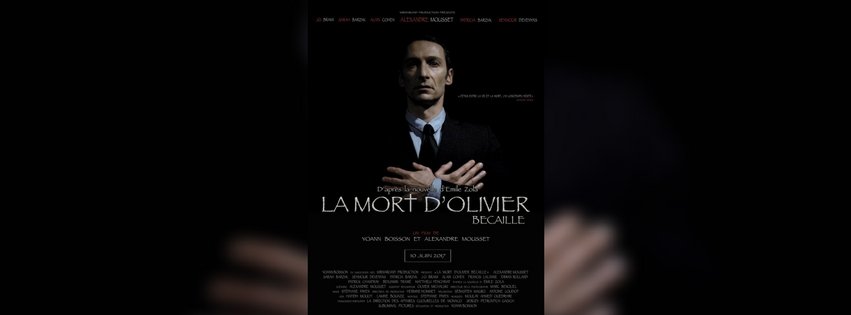
Olivier Bécaille, a stretcher bearer who has suffered from anxiety problems and a sickly nature from his early childhood, and has often contemplated death during his young life, ends up married to a beautiful girl, Marguerite. However, early one morning, she finds Olivier dead – or so she thinks. The young man finds himself in a state of catalepsy – he is unable to move or gesticulate, but he sees everything, and his other senses work perfectly. Soon, however, he finds himself in quite some trouble, as the ones around him have no doubts that he is, in fact, deceased.
Adapted from a short novel written by Émile Zola in what is director Yoann Boisson first film, ‘The Death of Olivier Bécaille‘ faithfully follows the narrative set by the famous French writer, while also adding its own substance and interpretation of facts. One obvious element is, of course, the present-day setting – thus keeping the contextual substance of the original material, while conveying it with a fresh, modern taste.
The film is undoubtedly a very enjoyable one, mainly due to the ramifications of its internal dialogue sequences, but also thanks to a very successful genre mix. What starts as a psychological drama continues to at times amuse with aptly-utilised instances of comic relief – such as the sequence where a drunk doctor tries to ascertain the time of death of his patient – but also some dramatic action which is sure to get the audience’s pulse up in a hurry. More than certainly, viewers will constantly be at the edge of their seats, if not because of the heart-wrenching suspense, then at least for the uncertainty of what’s to come, and what stylistic twist will follow. Fluidity and cohesiveness are slightly affected as a result, but I wouldn’t say this happens in a negative manner.
The acting is wonderful, and all actors do a fine job portraying their characters. However, the biggest strength of the film lies in its visuals – the cinematography is outstandingly realised, and everything from colours to lighting, the neat and steady framing of the shots and their overall visual grammar is completely top notch. The appeal of the technical and artistic side of the image goes hand in hand with the well-written content, of which the highlight is represented by, as mentioned previously, the interior monologues of Olivier Bécaille. After all his early nihilism, we discover in him an almost ironical relentless willingness to stay alive, and for his continued existence to be noticed. The main character’s worldview, with all its twists and turns, is certainly a sight to behold.
All in all, Yoann Boisson’s ‘The Death of Olivier Bécaille’ is a very good film which ‘talked’ to us on many levels, and can certainly consider itself a worthy adaptation of Émile Zola’s short novel with the same title. For the special qualities listed above, the film was chosen as the winner of the Best Film Award of our August 2017 edition.
TMFF RATING:





